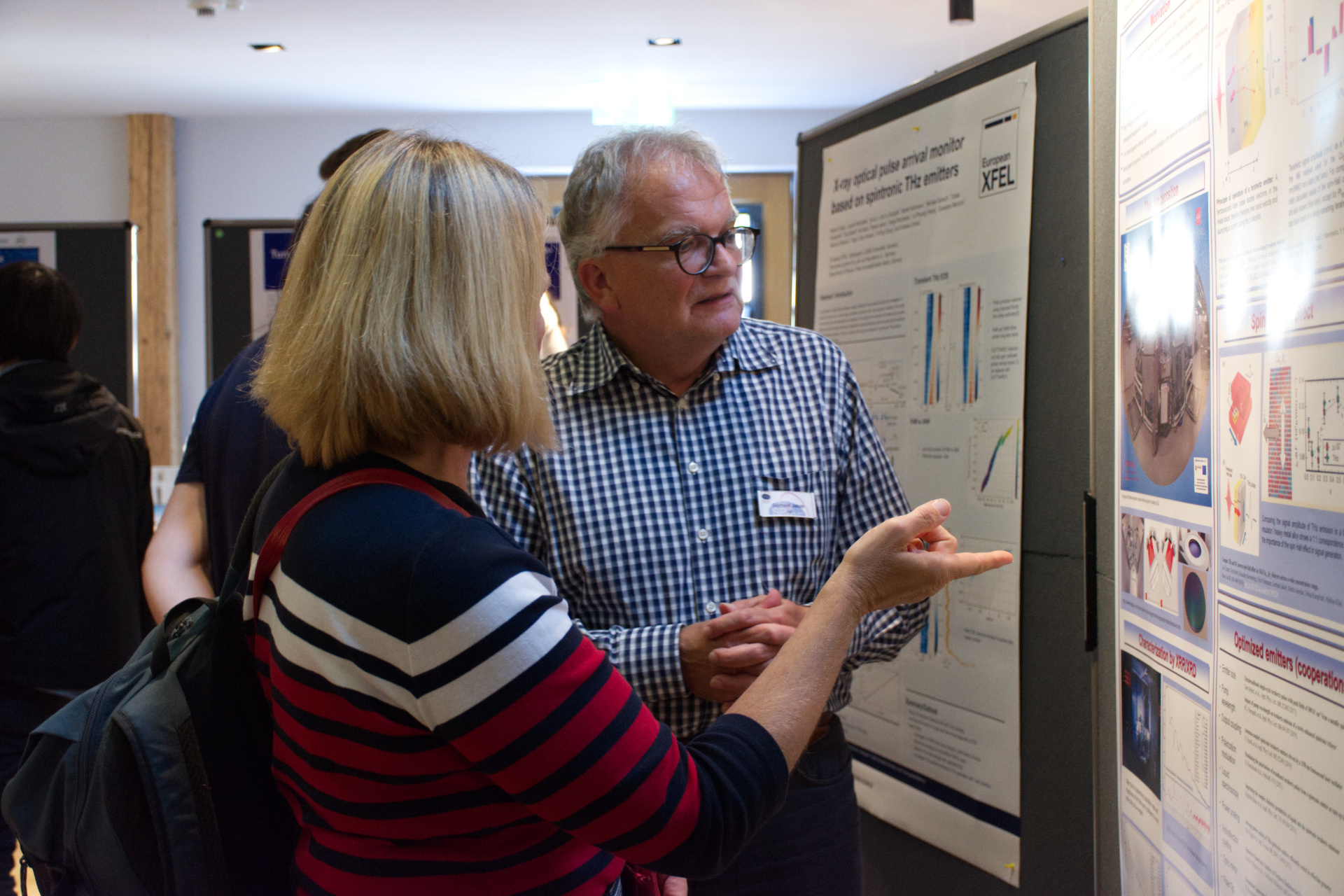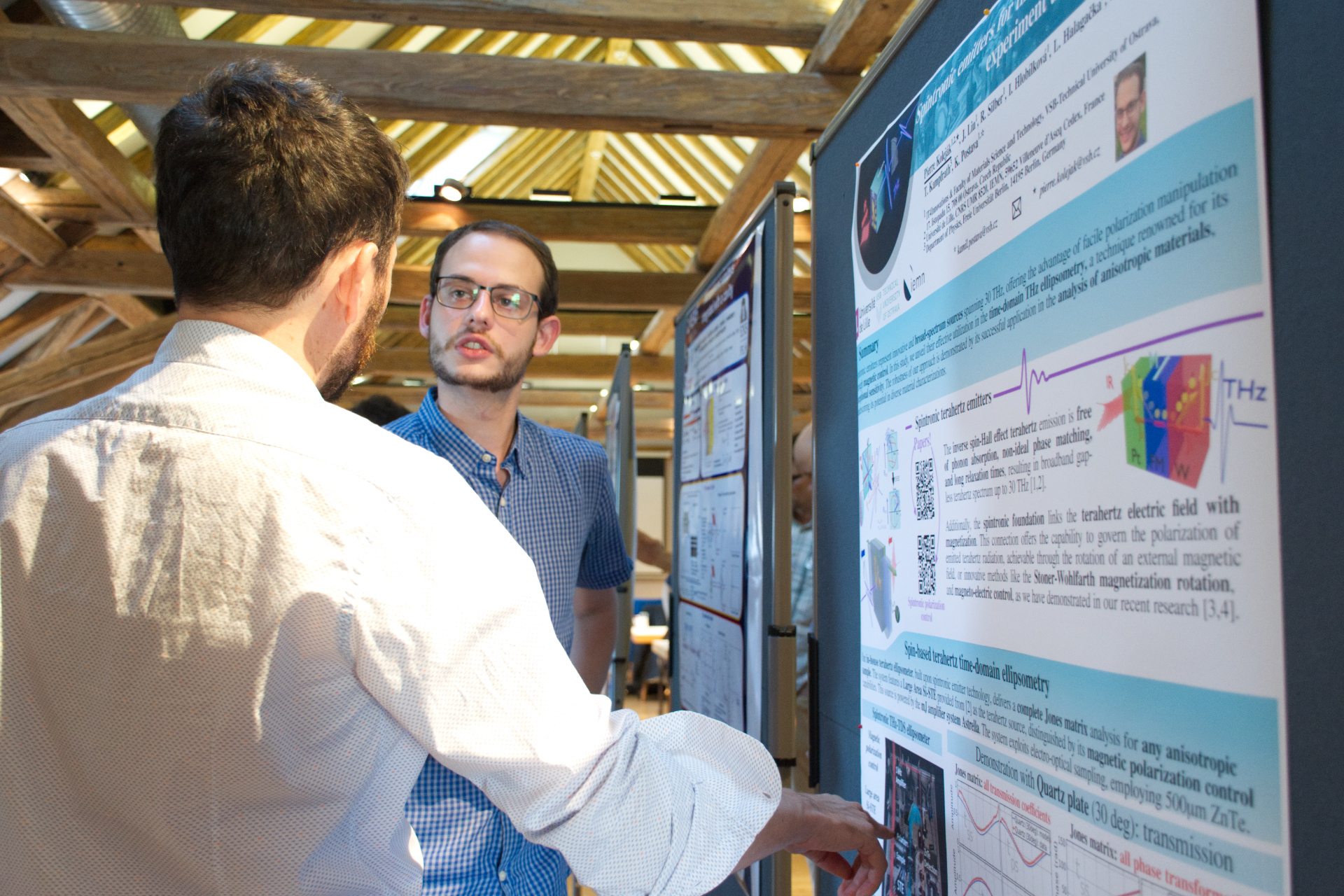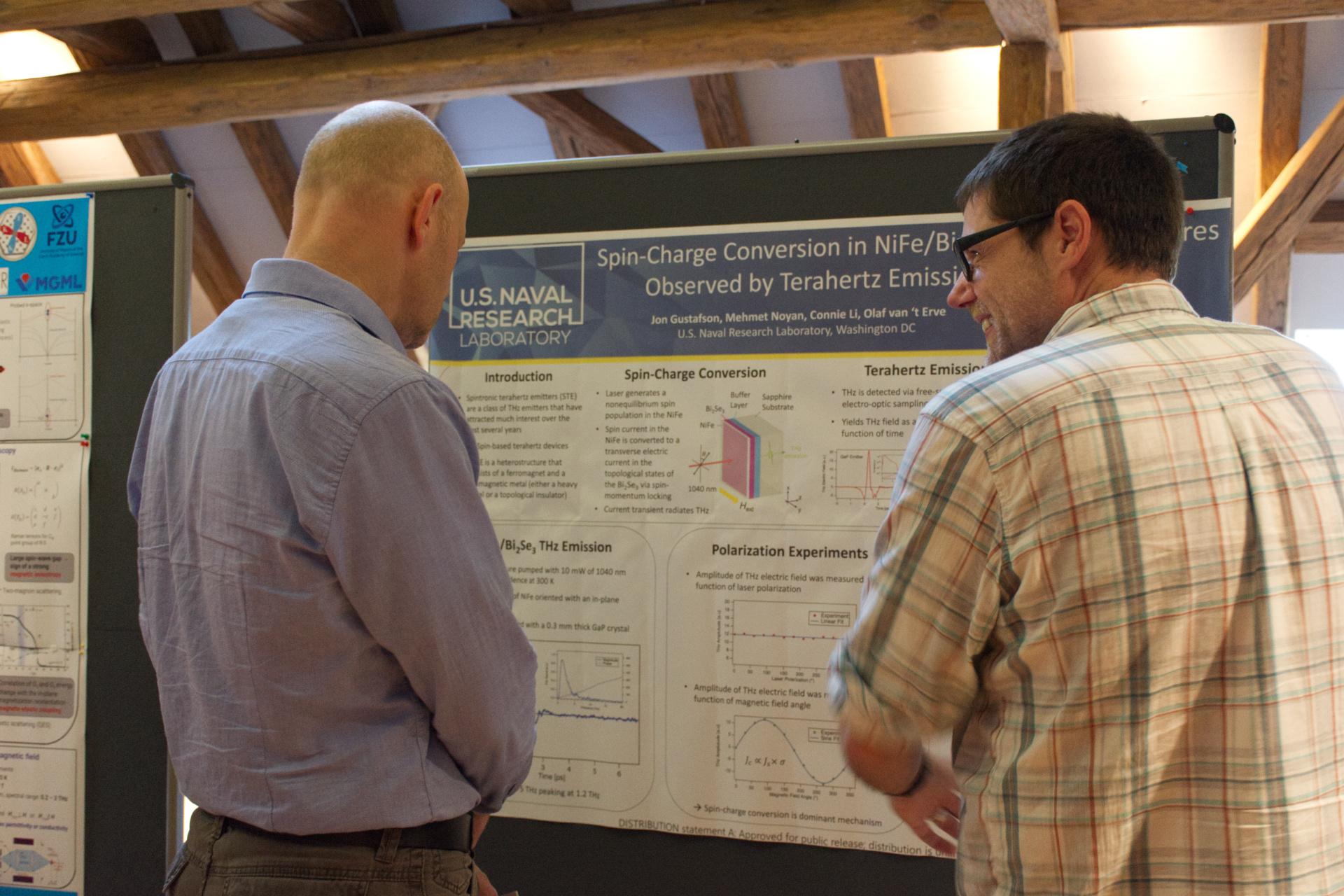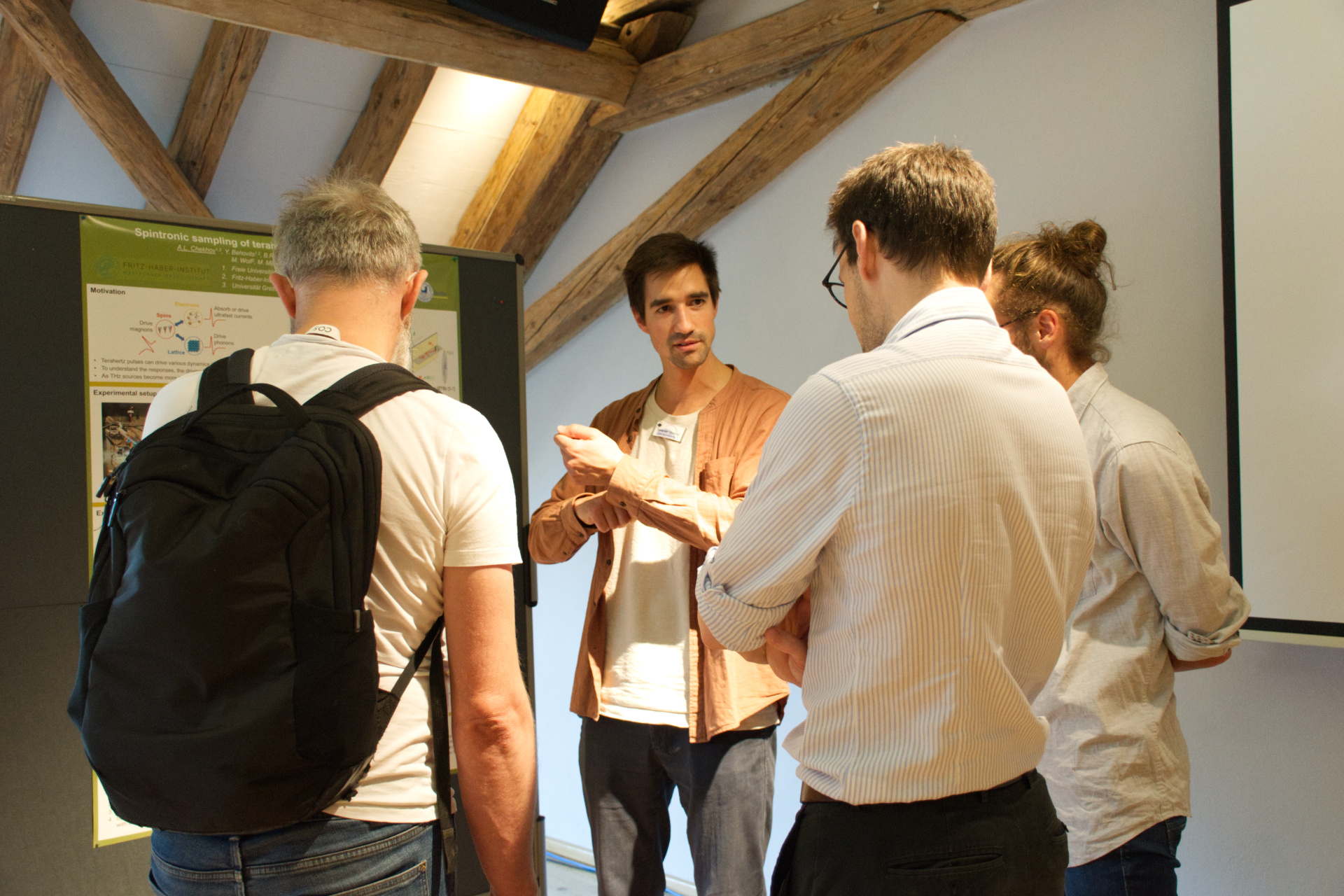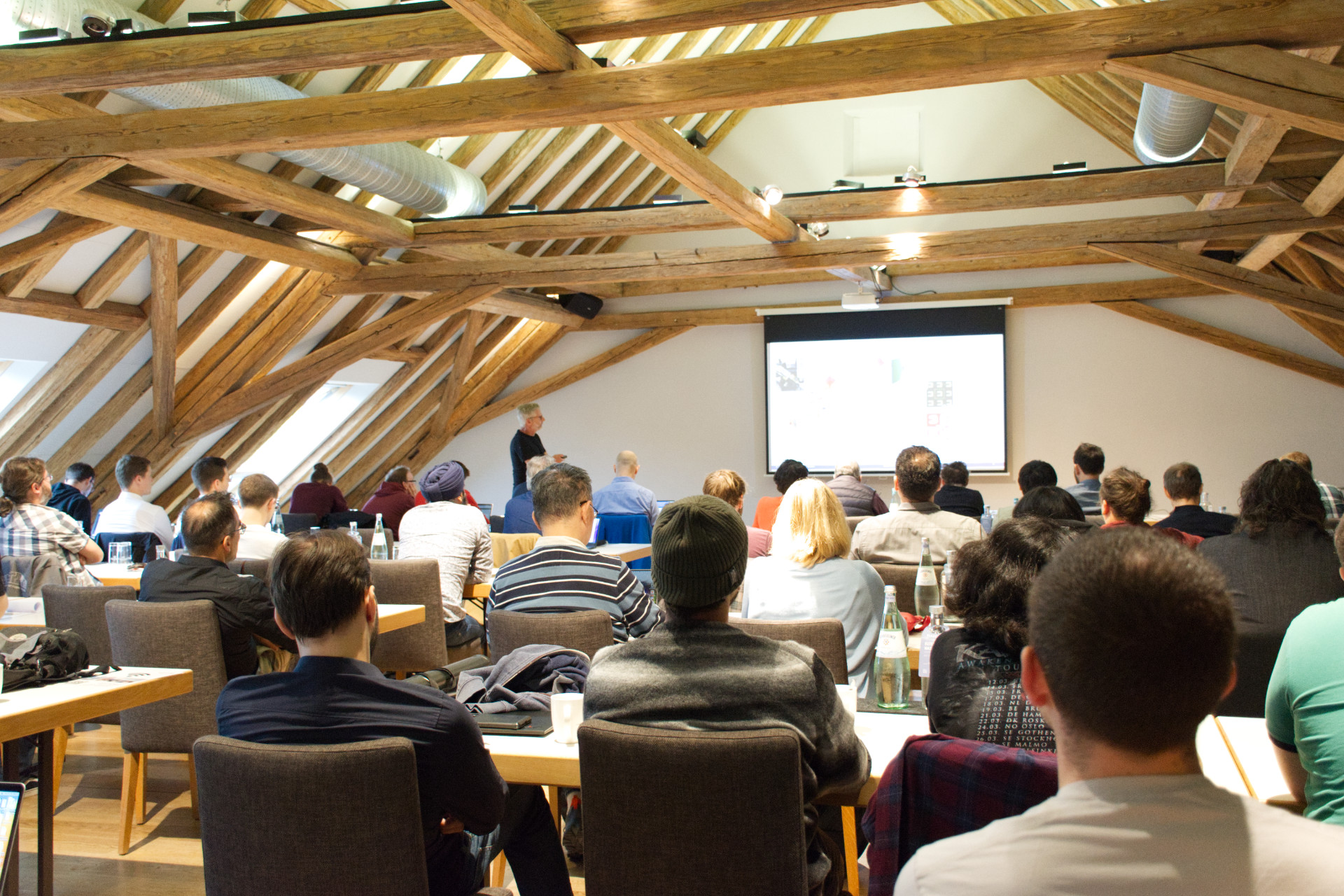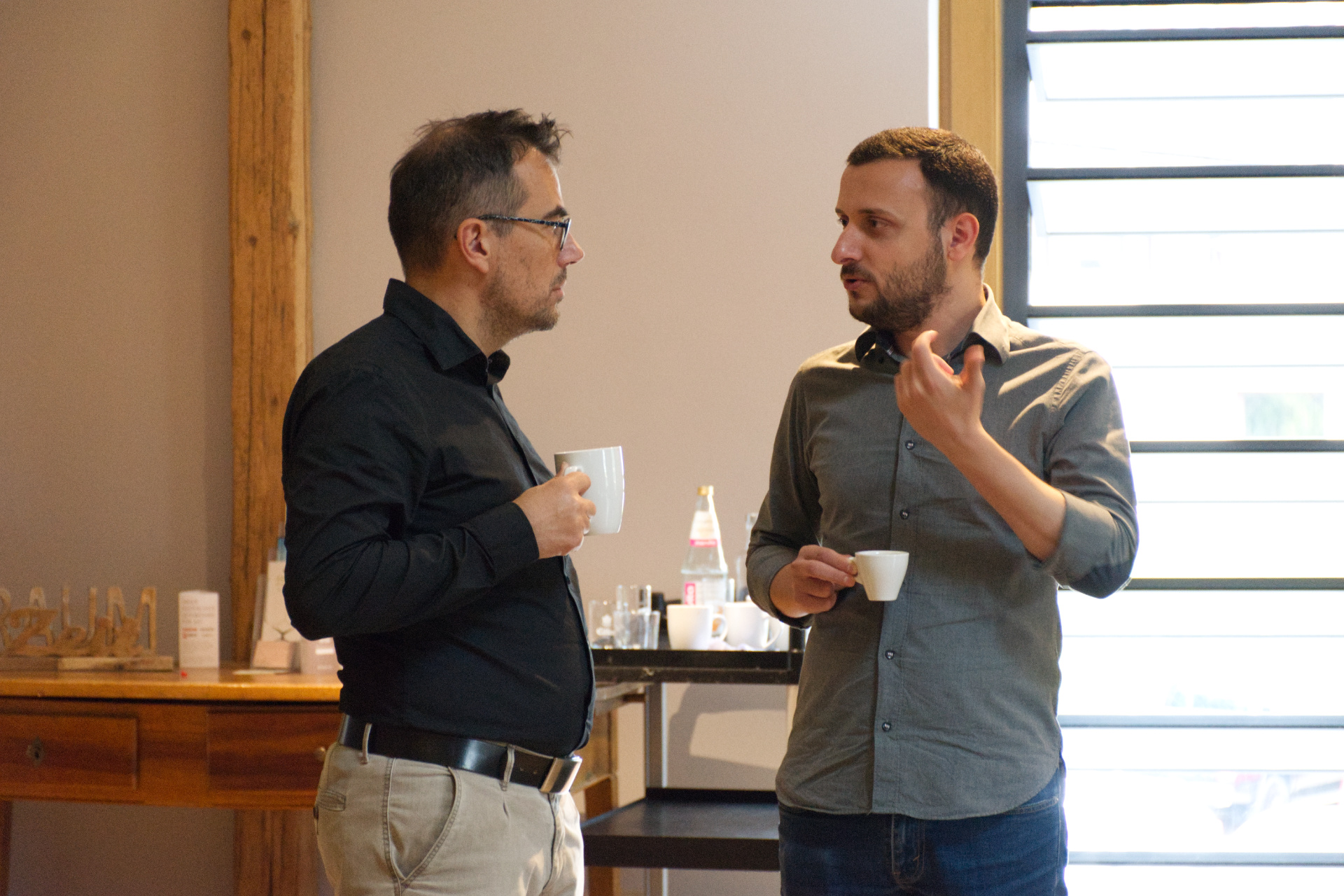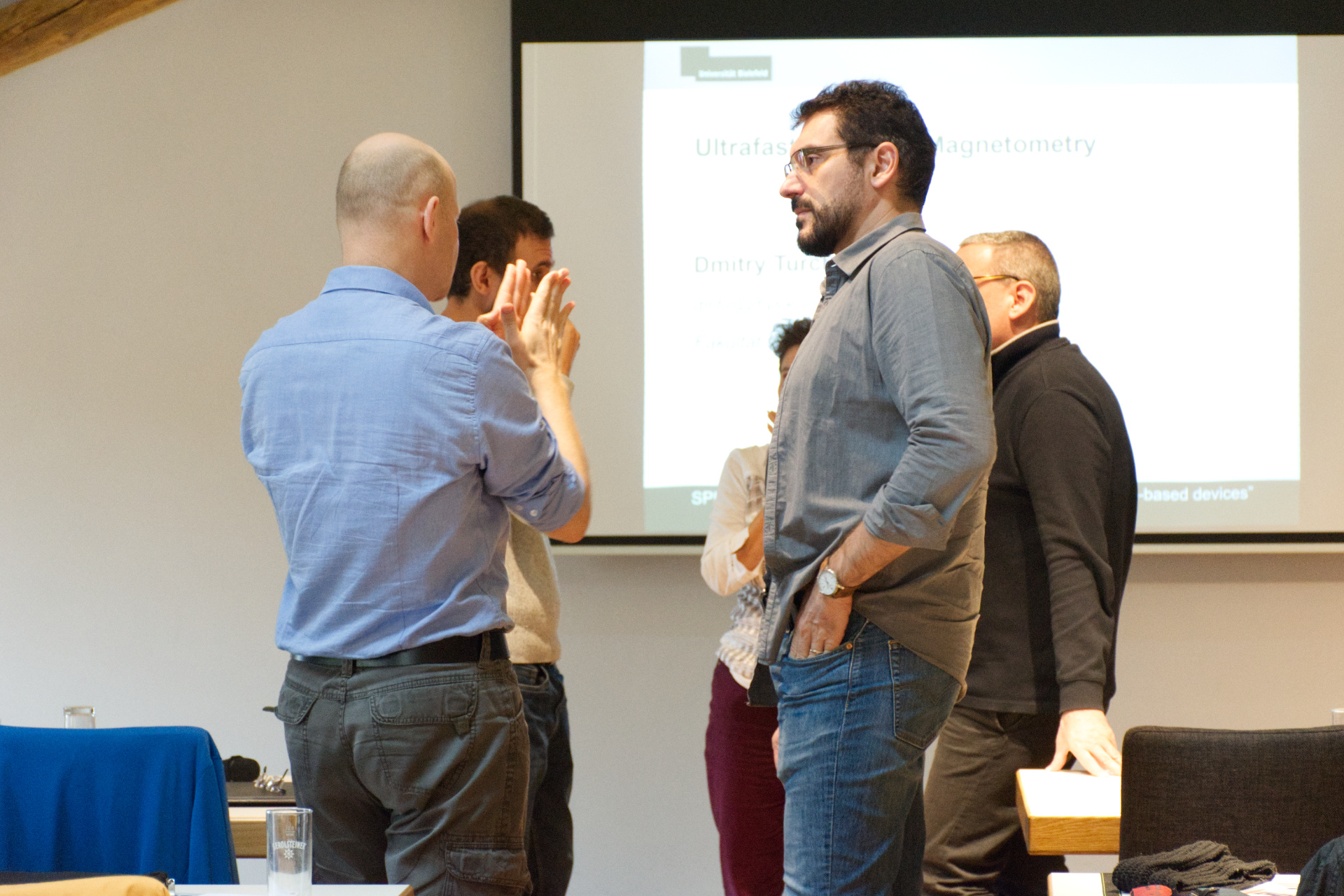Terahertz Spintronics: toward Terahertz Spin-based Devices
Workshop, October 10th - 12th 2023
THz spintronics is a novel research field that combines magnetism and spintronic with ultrafast optics. Although ultrafast demagnetization of ferromagnetic materials at picosecond timescale has been first observed already three decades ago, recent years have seen the rapid development of THz spintronic devices stemming from ground breaking studies. Many studies pushed the GHz limits of standard spintronic devices to the THz range by investigating new materials and spin-orbit interactions at ultrafast time scale. Especially, the development of broadband and high power spintronic THz emitters based on simple nanometer thin ferromagnetic / heavy metal bilayers holds the prospect to extend the THz field and widen its applications that has long while been limited to niches for astronomers and spectroscopists.
In the last years, the numerous improvements made in material research (such as on topological insulators and antiferromagnetic materials), interface quality and device engineering have been central to both explore spin-based physics at THz frequencies and investigate to new concepts of spin based THz devices. These cover the full THz block chain (broad and narrowband THz generation and detection, together with control of radiation properties such as polarization and ellipticity) as well as new approaches for THz imaging and encoding THz information. The widespread interest and progress in spin-based THz physics and devices continues to accelerate requiring joint efforts from magnetism, optics and engineering research communities. This workshop will bring together world-leading scientists from these broad range of communities, generating further collaborations and developmentsin this emerging field.
This workshop is organized by SPICE as part of the Gutenberg International Conference Center (GICC) at Johannes Gutenberg University Mainz (JGU). The GICC is funded through the German Research Foundation’s (DFG) university allowance in the Excellence Strategy program and aims at fostering JGU as a national and international research hub. By organizing regular conferences and workshops in fields of excellent JGU research, the GICC provides a platform to build interest networks and collaborations – to promote exchange and dialog among academics and research groups from all over the world.
Organizers
Sukhdeep Dhillon, Ecole Normale Supérieure
Tobias Kampfrath, FU and FHI Berlin
Romain Lebrun, Unité mixte de Physique CNRS/Thales
Invited Speakers
| Theodoros Adamantopoulos, FZJ Joe Barker, Leeds University Marco Battiato, NTU Singapore Yannic Behovits, FU Berlin Stefano Bonetti, Venice University Elbert Chia, Nanyang Technological University Shunsuke Fukami, Tohoku University Jon Gorchon, Lorraine University Darren Graham, University of Manchester Henri Jaffres, CNRS/Thales Benjamin Jungfleisch, University Delaware Tomas Jungwirth, Czech Academy of Sciences Alexei Kimel, Radboud University |
Melanie Müller, FHI Markus Münzenberg, Greifswald University Peter Oppeneer, Uppsala University Evangelos Th. Papaioannou, Martin-Luther University/ Aristotle University Felix Paries, Fraunhofer Institute for Industrial Mathematics ITWM Enzo Rongione, ICN2 Tom Seifert, FU Berlin Ranjan Singh, Nanyang Technological University Dmitry Turchinovich, Bielefeld University Mathias Vanwolleghem, Lille University Xiaojun Wu, Beihang University |


